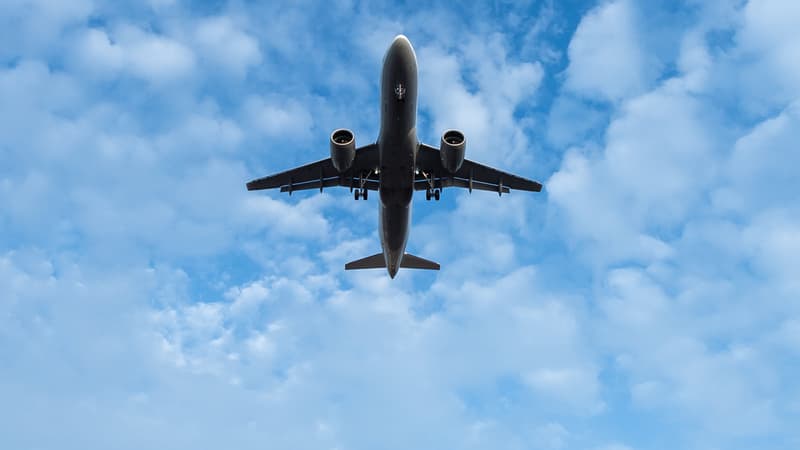This is an inflation never seen. Last April, the prices of plane tickets rose again by more than 20% year-on-year, a rebound that began in 2022 with the inflation of oil, and therefore kerosene, due to the war in Ukraine. For the moment, nothing seems to stop this dynamic, which has also been fueled by the depreciation of the euro against the dollar.
Worse yet, this dynamic could become even more pronounced in the coming months and years. Here are the reasons.
The cost of decarbonization is being felt
As we know, the decarbonisation ambitions of the sector, which accounts for 2-3% of CO2 emissions globally, are high. The objective is to achieve carbon neutrality in 2050 through two main levers, which are the renewal of fleets and the massive use of so-called clean or sustainable fuels, SAF (Sustainable Aviation Fuels).
More and more aviation players now believe that this deadline will not be met. But one thing is certain, they are aware of the full cost of this transformation. At the European level, the bill could amount to 800,000 million euros, according to a German study carried out by YouGov.
Fleet renewal: one billion euros per year for Air France
The new generation devices clearly bring a gain in terms of carbon emissions with a drop of -20 to -25% compared to the previous generation.
Large companies are currently multiplying mega-orders but this has a very significant cost, a cost that will be reflected in one way or another in the price of tickets.
Clean fuels, a priority at a price of gold
This is the quickest lever to get going as current aircraft can carry up to 50% SAF (which theoretically allows for 80% emissions reduction).
Problem, these fuels are still very expensive: 30% more than kerosene, in particular because the French and European sector is poorly organized and not overcrowded. “HE game changerthese are the SAFs, as long as prices don’t bring us to our knees,” says Anne Rigail.
However, Air France intends to board 10% of SAF on its planes in 2030 compared to 1% today, a higher threshold than that required by the European Union. But this will come at a price.
It should be remembered that the SAF, highly subsidized in the United States, is sold at 20,000 euros per tonne compared to 50,000 in France. For the equation to be sustainable, the players in the aviation sector demand that the public authorities take action on the matter.
“We try to give signals to the producers”, adds the leader of Air France. Even so, the company must now massively import these clean fuels. “But we believe that it will be difficult to fulfill our ambitions just like our European competitors. We need real public policies to develop the sector, especially since everyone is aligned with this priority and this technology, ”he laments.
even more taxes
An airline ticket issued in France is heavily taxed. We can mention various taxes as well as the 200 million euros per year generated by the eco-contribution implemented in 2020 (known as the “Chirac tax”).
And to finance the 100 billion euro rail plan, the government has clearly mentioned “a contribution in first class and business class tickets.”
The environmental associations also plead for a price of kerosene that at the moment escapes any puncture.
Obviously, this prospect is quite unpleasant. “Our request to the public powers is clear. The FNAM is committed to a stabilized regulatory, fiscal and operational framework that allows the aviation sector to ensure the necessary financial means for its decarbonisation”, underlines Pascal de Izaguirre who also mentions the issue of competitive equality with non-European companies.
Will the plane be reserved for an elite?
In short, it is a particular economic model that is being questioned today by the imperatives of decarbonization and the evolution of the fiscal framework. The risk, no longer being able to fly the middle classes, frightened by too high prices that go beyond a certain psychological threshold.
“Air transport must continue to benefit the greatest number”, continues the president of the federation who is also head of the Corsair company. “To return to an elite is to go towards the weakening of our industry.”
However, for some specialists, it is the decrease in traffic that will make it possible to amplify the decarbonisation of the sector.
A prospect that horrifies Jean-François Rial, executive director of Voyageurs du Monde: “Degrowth is not human. It’s like communism. It’s wonderful but it never worked. People in China, Sri Lanka or New York will never want to do it. We can decree but it will never come to pass.”
Source: BFM TV


